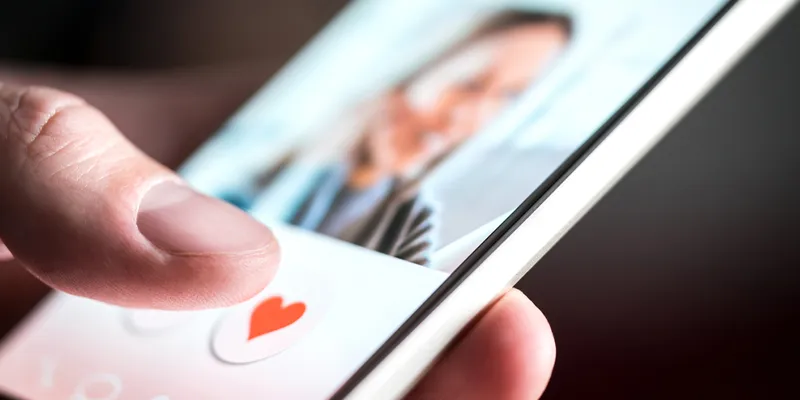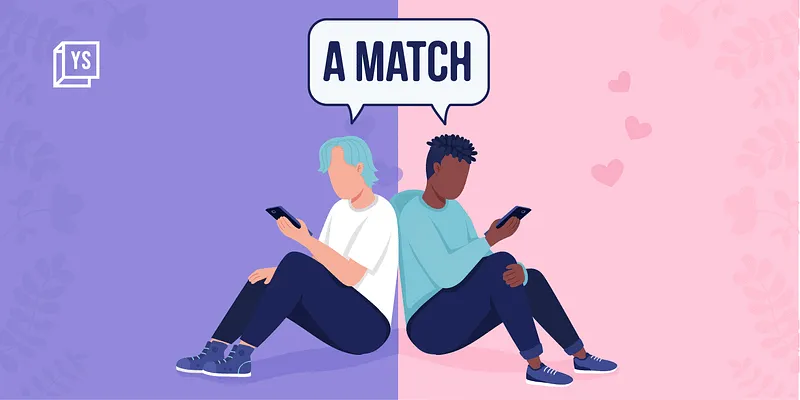Online dating can be empowering but also incredibly frustrating for women
Dating apps are enabling women to take charge of their dating lives with a swipe and a tap but finding true love and a safe experience is not that easy.
Twenty-one-year-old Sanjana Sharma from Delhi had always been shy and low on confidence. This, coupled with her insecurity over being “overweight”, prevented her from talking to people of the opposite sex, no matter how much she liked them. Not having dated anyone till then added to her frustration.
But during the pandemic, she decided to something about this and try out dating apps. She uploaded a cool picture, wrote a clever profile, and waited. Soon matches started pouring in and this gave her the much-needed confidence boost.
"Dating apps made it easy for me to talk to guys. I could just talk to men online over text and this saved me from the hassles of approaching someone face to face,” says Sharma.
In an era where love is hard to find the traditional way, online dating is proving to be a blessing for many urban Indian women—especially the introverts, who now feel encouraged to be themselves without worrying about being judged.
Dating apps are also providing a greater choice of potential partners and helping women make informed decisions about their romantic life.
In fact, Sharma did not immediately rush into dates with any of the men she got matched with. She took her time to understand what she wanted and the kind of partner she was looking for.
It was only after a month of talking and doing video calls with a guy that she went on a date with him. “Things really worked out for me and I am in a year-long relationship now,” she says.

Online dating is proving to be a blessing for many urban Indian women.
According to Riddhi Parashar (name changed), a 31-year-old teacher from Agra, being on a dating app gives her easy access to a wide pool of men with varied interests. “This helps me explore my own romantic interests more,” she says.
With dating apps—unlike traditional matrimonial sites—there is less pressure to ‘settle down’, yielding to parental push or society’s expectations.
Women especially love the liberated feeling that online dating promises—minus the burden of marriage—and look forward to the sheer experience of meeting new people and sharing meaningful conversations with them.
“I love having the freedom to choose my romantic partners, not just for the sake of marriage, but also for dating,” says Parashar.
Many women today, especially those living in urban areas, are comfortable being single and do not feel a compelling need to find a partner to ‘complete’ their lives. Self-love is moving beyond being a social media fad, with more and more women adopting habits that nurture their self-esteem and regard for their own happiness.
In short, many women are not viewing dating as a means to an end.
A recent study by dating app Bumble shows that 81% of Indian women are comfortable being single and on their own, 63% refuse to compromise on their choices and needs when dating someone, and 83% of women want to wait until they find someone they truly want to be with.
Parashar, who got divorced in 2018, began exploring the world of online dating in her late twenties. She did not want to conform to the traditional ways of finding a partner anymore. Besides, she was not looking for anything serious, as she had just been out of a marriage. And online dating came as a breath of fresh air.
“I just wanted to talk to people, make some connections and, most importantly, explore casual dating which I would not have been able to do otherwise,” she says.
On the flip side

Some women have had agonising encounters with people they met online.
However, the story is not the same for everyone. While Sharma and Parashar have had reasonably fulfilling experiences via dating apps, some women have had agonising encounters.
Modern relationships are hard, be they online or offline, and finding a match still remains a myth for many.
Alisha (name changed), a 26-year-old woman based in Agra, decided to explore online dating during the lockdown in 2020. It’s been two years since she jumped into online dating, but she hasn’t found a good—forget perfect—match yet.
Alisha has swiped right many times and opened up to strangers only to be ghosted time and again. In fact, she has lost count of the number of times she has been cut off without any explanation.
“It is so frustrating,” she says.
She recalls a time when a guy suddenly stopped talking to her, even after having long conversations, sharing pictures, and doing video calls. “It was heartbreaking," she says.
While online dating has emboldened some women and made them more confident and forthcoming, there are also instances wherein their self-esteem has taken a beating.
“There are times when I feel like I am just not good-looking or interesting enough for someone to like me. Such experiences have just made my insecurities about my weight grow out of proportion,” says Alisha.
She also narrates an incident when a guy pestered her for days to date him and send him pictures until she was forced to block him.
This brings us to the question of safety, especially when people start stalking others or do not respect the boundaries of personal space.
Access to technology and dating apps may have given women liberty and choice, but many women still feel unsafe in these digital spaces.
According to a global survey done in 2017 by cybersecurity firm Kaspersky, 41% have faced some form of fraud on dating apps. About 15% of the women surveyed said they had been involved in a conversation that made them feel uncomfortable compared to 10% of men.
Despite the growing popularity of dating apps, many women are still apprehensive about signing up for online dating fearing for their security and well-being.
Anisha Jain, a student in Mumbai, sends her location to her friends whenever she goes out on a date with a guy she has met online, while Muskan Singh, another student in Chandigarh, uninstalled a dating app shortly after joining it.
“I have heard so many fraud stories that I fear using these apps. How can one verify if the guy is genuine or not is the biggest issue,” she elucidates.
Bumble says its app gives women power by putting them in control of their interactions. “Women make the first move by opening the conversation and setting the tone for kind and respectful connections. Women control whom they engage with, and unwanted messages or advances are not tolerated,” says Samarpita Samaddar, India Communications Director, Bumble.
But first-mover advantage alone may not help women ward off unwanted attention and stalkers in real life. Women have faced instances of being stalked in person or catfished by men they met on dating platforms.
Umang Ghai, a 24-year-old woman in Agra, had an unpleasant experience when she decided to meet a guy she met on a dating site. “I told him I was looking for something serious and he agreed. But it was when he insisted on meeting me in an Oyo, I understood his intentions and then I blocked him,” she recalls.
Online dating may empower many women and give them agency, but it certainly isn’t a level-playing field out there. Like with most technology, online dating’s success lies in its users and how they perceive it. Dating platforms certainly need to put in adequate checks and balances to ensure the safety of its users, but it’s naïve to expect technology to remove the inequalities that ail society.
However, one thing is for sure—as more and more people go online to find true love, companionship and/or a committed relationship, dating is never going to be the same again.
To online date or not? That’s the modern dilemma women have to deal with.
Edited by Swetha Kannan







